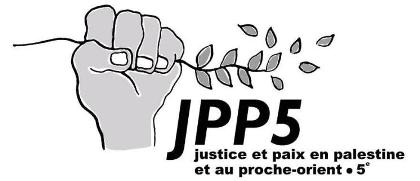 BETHLEHEM (Ma'an) -- Israeli forces took down and destroyed some 60 solar panels in the isolated village of Jubbet al-Dhib east of Bethlehem city in the southern occupied West Bank on Wednesday morning.
BETHLEHEM (Ma'an) -- Israeli forces took down and destroyed some 60 solar panels in the isolated village of Jubbet al-Dhib east of Bethlehem city in the southern occupied West Bank on Wednesday morning.Head of the village council Rateb Abu Mahamid told Ma’an that Israeli army forces and members of the Israeli Civil Administration raided the village early Wednesday to seize the solar panels, highlighting that they were installed last year by human rights organizations to provide electricity to the remote village, which has "no necessities of life to survive," according to the Applied Research Institute - Jerusalem (ARIJ).
The village, located in Area C -- the more than 60 percent of the occupied West Bank under full Israeli military control -- is surrounded by illegal Israeli settlements, and as a result, Israel bars Palestinians from building and being connected to basic infrastructure, Abu Mahamid told Ma'an.
In response to a request for comment on the incident, a spokesperson for COGAT, the Israeli agency responsible enforcing Israeli policies in the occupied territory, wrote that "illegal solar and electric panels were detected" that did not have the necessary permits.
The spokesperson said that stop-work order had been delivered for an "illegal electricity room" and the stands for the solar panels. "We emphasize that the village has other electricity sources," the written response concluded.
Some 150 Palestinians reside in Jubbet al-Dhib, which is neighbored by the illegal Noqedim settlement -- home to Israeli Defense Minister Avigdor Lieberman -- as well as the illegal El David settlement.
“In order to contribute in reducing the suffering of the people of the village, help them to stay in their lands by protecting it from the ambitions of the Israeli occupation to confiscate it, the idea of using solar technology to light up the village streets, as well as lighting the village gathering center (the mosque) was considered,” ARIJ wrote in a village profile in 2010.
However, Israeli authorities have continued to refuse to grant a license for the project, forcing residents and NGOs to carry on with the solar panel installation without Israeli permission.
“The Israeli civil administration's decision not to grant a license to implement the project of solar energy technology in Jubbet al-Dhib village means depriving the Palestinian residents of their most simple human rights of access to the most basic rights such as: education, health, the right to work, and the sense of humanity,” the report said.
ARIJ affirmed that the Israeli restriction represented a violation of international human rights law and “confirms the continuation of Israeli policy towards Palestinians to increase their suffering by causing people to leave their homes, and controls Palestinian lands in order to expand Israeli settlements.”
“This policy does not only include Jubbet al-Dhib village, but almost ten Palestinian villages, which suffer from the lack of services and development projects,” the group wrote at the time.
More than 300 structures demolished by Israeli authorities in 2016 were erected with support of international organizations or with the financial help of the European Union, according to an Israeli military official cited in a report by Israeli newspaper The Jerusalem Post.
The official told The Jerusalem Post that a new procedure was put in force in 2016, which allows Israeli authorities to demolish a structure built without Israeli permits within 60 days of its construction without legal proceedings.
In 2016, Palestinians experienced the highest number of Israeli démolitions recorded in a year since rights groups began recording the incidents.



